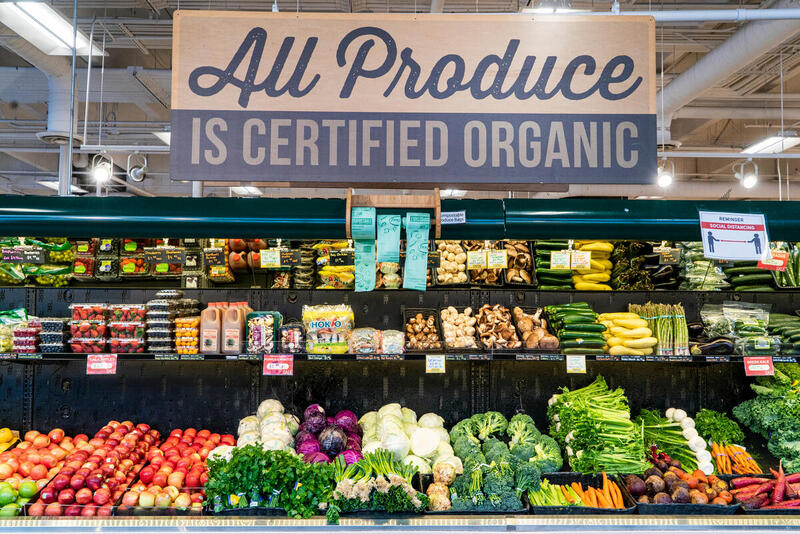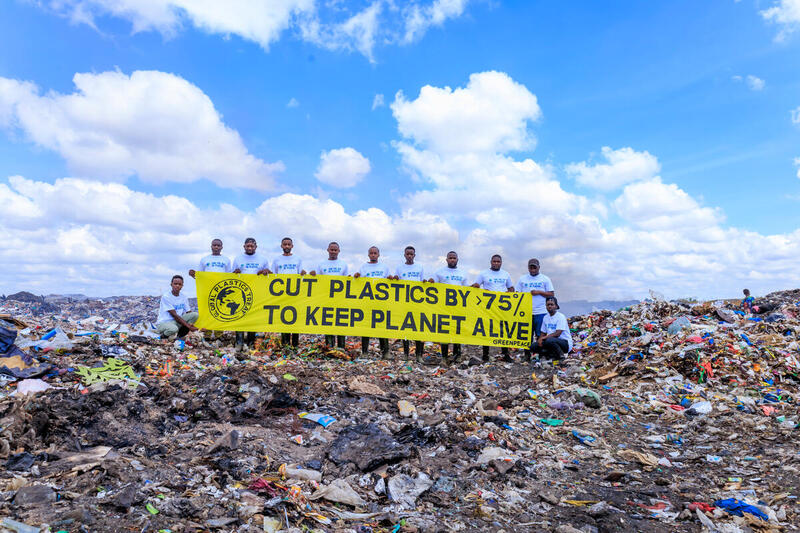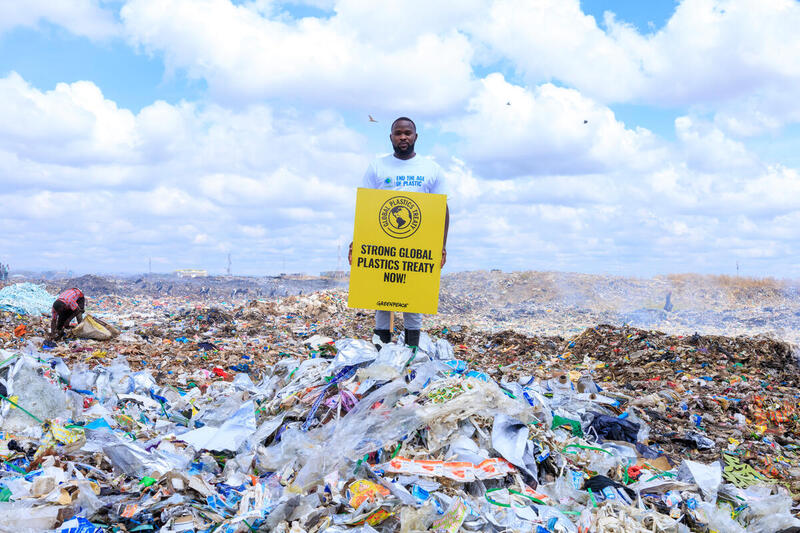Your child or grandchild will beg you to take a trip to the Okavango Delta, Kavango parks and the World Heritage sites there. What will you tell your child? We don’t have the funds or it’s too far? Or will you tell them the truth that the environment is still suffering from the damage fracking has caused there? Will you tell them that the Okavango’s once precious, sensitive and enchanting waters are contaminated, endangering anything that dares to drink from them? That the African and cultural magic has disappeared along with the wildlife and natives?
Greenpeace Africa and Fridays for Future Namibia have already brought us face-to-face with the truth of how Canadian ReconAfrica’s drilling for oil and gas in the Okavango is risking one of the Seven Natural Wonders in Africa for 120 billion barrels of oil, and gigatons of CO2.
The junior oil and gas company works with national governments to explore the petroleum potential of Namibia and Botswana and has obtained a 100% petroleum license which compromises the north east of Namibia and north west of Botswana, summing to 8.5 million acres of land to frack, or rather to disrupt living ecosystems and destroy the land.
What’s more shocking, is that Namibia’s Ministry of Mines and Energy has not only issued an official license for the endangering of the Kavango Basin, but surprisingly holds 10% interest in the license. Not only is this contradictory to Namibia’s Climate Promise and the international Paris Agreement, but this hypocrisy breaks a promise to our home and our people.
Research from the Ohio State University states that the consequences of the gases released, such as carbon dioxide and methane, can cause severe health impacts such as cancer and birth defects The research also states that “because of the nature of fracking procedure and its association with natural gas and oil, harmful chemicals, such as benzenes and xylenes, are discharge into the air (Mrdjen & Lee, 2016). Mrdjen and Lee mention that chronic exposure to these toxic chemicals can cause an increased risk of cancer, particularly within 0.5 miles of the HVHF well. Besides releasing poisonous chemicals, HVHF also releases the greenhouse gas methane, which may contribute to the greenhouse effect.”
Greenpeace Africa has outlined how approximately 51.6 gigatons of CO2 is unleashed during fracking. In order to frack, an enormous amount of water is mixed with various toxic chemical compounds to create fluid. This frack fluid is further contaminated by the heavy metals and radioactive elements that exist naturally in shale. Significant portion of the frack fluid returns to the surface, where it can spill or dumped into rivers and streams. Underground water suppliers can also be contaminated by fracking, through migration of gas and frack fluid.
Did you know that 35 million litres of water is contaminated per frack? That flings open a window for the Okavango Delta’s elephants, buffalo, rhino, lions, bird species and many more to unknowingly die from water poisoning, drastically culling the beloved wildlife which makes this region what it is.
Fracking does not only damage the environment, but communities and every person within as well. A San Youth leader explains how the San people’s natural way of living, hunting, gathering, commemorating, sustaining and surviving is obstructed without their consent. To know that my people are deprived of their homes and lives only makes me question Namibia’s ambitions of working towards climate change and thereby also addressing food security and poverty.
We will take ReconAfrica’s motives into consideration. They peddle the same rickety old tales that fracking is a cost-effective job generator that burns more cleanly than coal. Sustainable and healthy jobs must be the focus as well as protecting our environment.“Africa is the final frontier for oil discoveries because it is so vastly under-explored…” comments Daniel Jarvie from Recon Africa. It reeks of neocolonialism; Jarvie still believes that Africa is an undiscovered place which will generate wealth for Canada once bled dry of all its resources. ReconAfrica is oblivious to this.
Greenpeace Africa is collaborating and engaging with local stakeholders as well as activists and urging the public to stand together to put a halt on this detrimental fossil fuel extraction mission. Along with environmentalists and human rights activists, they campaign and protest against this and other environmental disasters, for they understand as we all should that giving way to fracking and the extraction of these fossil fuels in our pristine Okavango, is a grave mistake. What Africa needs is to totally transition to renewable energy because our continent’s climate can generate energy from natural resources. According to thise research paper, renewable energy sources, especially solar, are ideal for meeting Africa’s power needs.
Environmental organisations have emphasised why we fracking will jeopardise any living and breathing environment. They are encouraging you and I to take a stand collectively and reach out to our president to look at the situation through nature’s and the people’s eyes; only then might he see what devastation is taking place. So that we don’t just stand as the public, but so that we can stand together as a nation, as a family and rid our motherland and that of our neighbours, of this catastrophe.
As a climate activist not only for the environment, but for my country, our Namibia, I find it devastating that we are inviting this issue to build a nest in our home and in our land.
So tell me, will we really just sit back and observe the destruction of these precious jewels from the Okavango treasure chest, from OUR land, the land of the brave? What are you going to tell your grandchildren when they want to take a trip to the Okavango Delta?
Samantha Majiedt
Climate Activist
Moblie: +264818188068
Email: [email protected]




Discussion
There is no fracking proposed. The activities are very far away from the delta. This is spreading misinformation and doing true environmental stewards a major disservice. I understand the desire to bring attention to these important issues but proceeding in a deceitful way is not the correct approach if we truly want to tackle climate change
Thank you for sharing your concerns with us. Kindly note, Fridays For Future Windhoek revealed that the oil and gas ‘play’ of Canadian ReconAfrica in the Kavango "region" of Namibia and Botswana risks destroying global attempts of meeting a two-thirds chance of limiting global heating to 1.5°C as part of the Paris Climate Change Agreement.